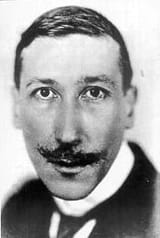Anonymous
7/17/2025, 11:12:07 AM No.24557860
>If we can historically trace Guénon’s philosophical inspirations back to the Renaissance, which Guénon himself harshly criticized for misunderstanding the sacred civilization of the Middle Ages, and if we can find there the first formulations of Sophia Perennis or the Prisca theologia which compose the foundation of Traditionalist philosophy, then in it becomes completely obvious that these currents came to Western Europe in the Renaissance from the much deeper past and, to a certain extent, from a different cultural context (more specifically, the Byzantine-Greek). Of course, Platonism was well known in Medieval European Scholasticism, but it had long since yielded to Averroism and Aristotelianism enshrined virtually dogmatically in the realism of Thomas Aquinas. Hermeticism had existed in the form of alchemical currents and esoteric fraternities, but in the Renaissance these tendencies surfaced in rather vivid and magistral form, such as in the forms of open Neoplatonism and philosophically-formulated Hermeticism (with numerous direct or indirect polytheistic elements), which claimed to be not merely a secret tradition parallel to the dominant Scholasticism, but a foundational, universal worldview. Renaissance Platonism and Hermeticism directly opposed Catholic Tomism and formulated the agenda of Renaissance Humanism. This humanism was magical and sacred: man was understood to be the “perfect man”, the Platonic philosopher, the Angel-Initiator.
>The Renaissance Platonists appealed directly to the works of Plato, Plotinus, Hermes Trismegistus, and the broader corpus of Neoplatonic and Hermetic theories, many of which were freshly translated from Greek. Platonic humanism was reformed into a conceptual, theoretical bloc and began its offensive against previous philosophical and theological constructs. The Neoplatonists justified their claims to truth by emphasizing the antiquity of their sources and by claiming to propose a philosophical paradigm which could generalize different religious confessions, and as such was more universal and more profound than the Catholic religion of Europe. This synthesis came to include, in the very least, Byzantine Orthodoxy, but the reform program of Gemistus Plethon was even broader, proposing a restoration of “Platonic theology” as a whole and a return to certain aspects of polytheism. Platonism, like Hermeticism, was seen not simply as one philosophical or religious tendency among many others, but as “universal wisdom” capable of serving as a key to the most diverse philosophies and religions, as a common denominator. This idea of a meta-religious generalization became the most important notion of the Rosicrucian movement and, later, European Masonry (as shown by Yates).
Guenon: Bb-but Renaissance... Le Bad
Was he just trying to cover up his influences, not to be identified with le individualistic and "neopagan" characteristics of the Renaissance?
>The Renaissance Platonists appealed directly to the works of Plato, Plotinus, Hermes Trismegistus, and the broader corpus of Neoplatonic and Hermetic theories, many of which were freshly translated from Greek. Platonic humanism was reformed into a conceptual, theoretical bloc and began its offensive against previous philosophical and theological constructs. The Neoplatonists justified their claims to truth by emphasizing the antiquity of their sources and by claiming to propose a philosophical paradigm which could generalize different religious confessions, and as such was more universal and more profound than the Catholic religion of Europe. This synthesis came to include, in the very least, Byzantine Orthodoxy, but the reform program of Gemistus Plethon was even broader, proposing a restoration of “Platonic theology” as a whole and a return to certain aspects of polytheism. Platonism, like Hermeticism, was seen not simply as one philosophical or religious tendency among many others, but as “universal wisdom” capable of serving as a key to the most diverse philosophies and religions, as a common denominator. This idea of a meta-religious generalization became the most important notion of the Rosicrucian movement and, later, European Masonry (as shown by Yates).
Guenon: Bb-but Renaissance... Le Bad
Was he just trying to cover up his influences, not to be identified with le individualistic and "neopagan" characteristics of the Renaissance?
Replies:

